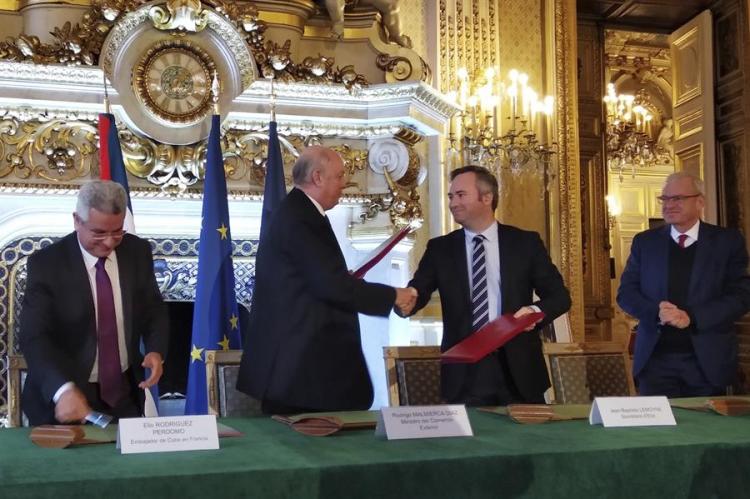France and Cuba signed this Friday two agreements for which Paris will invest 5 million euros in an agro-tourism project and 2.7 million for the reconstruction of water networks, as well as strengthening their commercial cooperation.
The agreements were signed in Paris by French Secretary of State for Foreign Affairs Jean-Baptiste Lemoyne and Cuban Minister of Foreign Trade and Investment Rodrigo Malmierca at the end of the fourth session of the Franco-Cuban Economic and Commercial Commission that has been held since 2016.
Concluyó hoy 4.ª sesión Comisión Económica y Comercial #Cuba–#Francia. Firmamos con Secretario Estado Jean Baptiste Lemoine acuerdo para recibir financiación de medio y largo plazo. Ambos rechazamos bloqueo #EEUU y ley HB. @cubavsbloqueo @MINCEX_CUBA pic.twitter.com/Ou5DaNnEkq
— Rodrigo Malmierca Díaz (@R_Malmierca) December 6, 2019
Lemoyne and Malmierca also formalized an agreement whereby the French state financial agency Bpifrance will offer mid- and long-term guarantees for up to 150 million euros for French companies that export to Cuba.
The first agreement on agro-tourism, referring to the “coffee routes” project, will allow the creation of a tourist circuit related to the country’s coffee culture.
“Cuba is particularly attractive” to French companies, which are already present, for example, in hotel activity and air transportation, Lemoyne said in a statement to the press, and added his interest in a country that develops “sustainable and long-lasting tourism.”
The second agreement is for the reconstruction of water pipes and collectors that were damaged by Hurricane Irma in September 2017, valued at 55 million euros. The bilateral fund is 2.7 million and will be added to another 20 million from the French Agency for Development and a European grant.
Both projects are part of the fund derived from the 2016 agreement between the two countries on Cuba’s debt with France, endowed with 212 million euros to finance development programs of common interest.
Malmierca insisted that the support of governments such as that of France is essential for the business sector to feel protected against “the consequences of the U.S. economic and commercial blockade.”
“France,” he added, “guarantees French entrepreneurs the possibility to continue working successfully in Cuba and be protected against these threats.”
The French secretary of state, meanwhile, said that this collaboration “symbolizes the will to build in a context, needless to say, complicated by the U.S. embargo, which France rejects.”
He recalled that the European Union has taken measures since the 1990s and that France “has been decisive” in these European initiatives “to protect legitimate economic activities and investments.”
“We are pleased to know that we are not alone and that other countries such as France support our fight against this blockade, which is undoubtedly a measure that goes against international law,” said Malmierca.










